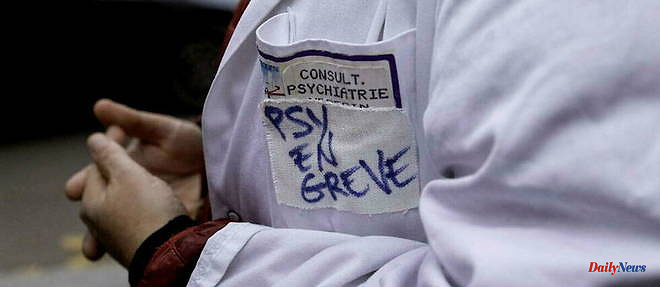Could the death of a 37-year-old nurse at the CHU de Reims, killed in hospital by a patient suffering from psychiatric disorders, have been avoided by better care? Impossible to say, but the drama brings to light the long-standing collapse of this sector. The murder "immediately raises the question of the catastrophic situation of the care of the mentally ill in our psychiatric establishments", reacted Force Ouvrière Santé on Tuesday, after the announcement of the death.
According to the first elements of the investigation, the attacker, a 59-year-old man under curatorship, suffered from severe psychiatric disorders and had already been violent on several occasions. Even if it is not possible at this stage to determine what precise role played his pathology, the nature of which is also unknown, questions are already being asked about the psychiatric follow-up to which he was subject. "The patient had not been taking his treatment for over a year," reported a local union source, who requested anonymity.
Several actors in the hospital world therefore see in this drama a new illustration of the difficulties of French psychiatry, a sector plunged into a deep crisis for several decades. "We are going to experience tense moments in terms of psychiatry" in the coming years, acknowledged Arnaud Robinet, president of the Fédération hospitalière de France (FHF), on Tuesday, on RTL. He used a term ubiquitous among observers of the sector: psychiatry is the "poor relation" of the French health system.
The observation is the same on the ground, in terms often more virulent than those of Arnaud Robinet, also mayor of Reims and member of the presidential majority (Horizons).
And it's not from this week. In recent months, the main organizations of psychiatrists at the hospital have repeatedly denounced the "disrepair" of the sector and the "great contempt of the government".
Psychiatry has problems common to the whole hospital, but amplified by the specificities of mental disorders: these often require long-term follow-up and drug treatments must generally be accompanied by psychotherapies, which involve long consultations.
To respond to this, the means of the public hospital appear inadequate, which results for many patients, in particular children and adolescents, in the impossibility of finding an appointment for many months and then of benefiting from sufficiently regular follow-up. One figure shows that this trend goes back a long way: between 1997 and 2021, the number of inpatient psychiatric beds fell by about a fifth, from almost 100,000 to just over 80,000.
Known for a long time, the crisis of psychiatry therefore returned to the political field on Tuesday: Éric Ciotti, the leader of the Republicans, thus called for a "great psychiatry plan", a concern hitherto rarely expressed on the right. But "it is not by snapping our fingers that we will have more doctors tomorrow, we will have to wait ten years", warned François Braun, the Minister of Health, at the National Assembly, also defending the "sharing of skills with specialist nurses.












